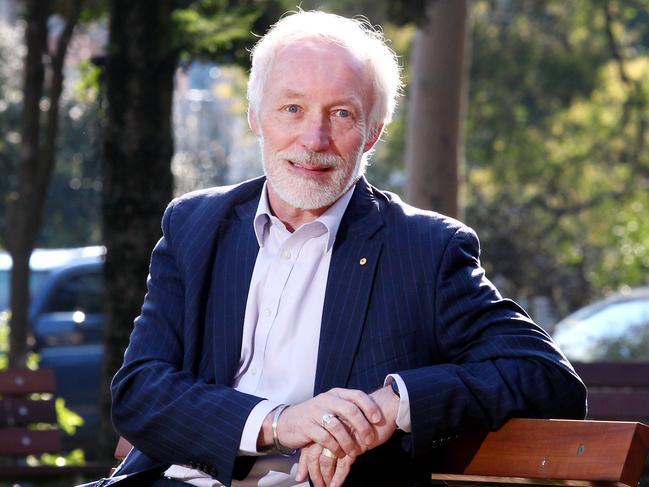Prof Patrick McGorry says kids’ mental health care going nowhere
Mental health experts including former Australian of the Year Professor Patrick McGorry and headspace CEO Jason Trethowan claim young people suffering “complex” mental health conditions aren’t getting the expert help they need.
NSW
Don't miss out on the headlines from NSW. Followed categories will be added to My News.
Young Australians are losing their futures, and their lives, because complex psychological problems can’t be treated by the government’s youth mental health service.
Leading mental health experts have warned a lack of resources and critical services at the Federal government’s headspace meant teens and young were being condemned to welfare and is contributing to hundreds of preventable suicides.
Melbourne University Professor Patrick McGorry said 40 per cent of 12-25-year-olds visiting headspace can’t get proper treatment there.
Those with complicated depressions, psychosis, eating and personality disorders, schizophrenia and other conditions requiring psychiatric treatment are the most affected.

PLASTICS POISONING SYDNEY’S BEACHES AND WATERWAYS
BILLIONAIRE’S DAILY $50K FRUSTRATION WITH GLADYS BEREJIKLIAN
Prof McGorry, who is also the executive director of youth mental health program Orygen, said while headspace has been effective at providing an open door for young people seeking help, it does not have the capacity to deal with complex disorders.
He called the gap between what headspace can provide and acute inpatient mental health treatment the “missing middle”.
“A lot of these people are so unwell that they can’t get to appointments,” Prof McGorry, a former Australian of the Year and founding director of headspace, said.
“These young people are losing their futures, and in a growing number of cases, many hundreds each year, their lives
“You need not just a GP and a few other people, but a major multidisciplinary team who have got out reach capacity, home treatment capacity and psychiatrists and addiction specialists.
“We can’t wait to fix this problem because lives are at stake.”
Headspace has 110 centres around Australia that are moulded to reflect the needs of the individual communities it serves.
Centres are staffed by psychologists, counsellors, youth workers and other mental health professionals.

But headspace CEO Jason Trethowan said “it just feels awful” for clinical staff who don’t have the resources to help young people in serious distress.
“We get notified when young person who is in high levels of psychological distress has gone to the emergency department, which is the worst place that you want to be,” Mr Trethowan said.
“Clearly there are many examples where young people are either dying or in the wrong place — for example, the emergency department.
“There is a real conundrum for headspace, the acute health system, young people and families because there is a gap.”
About 11 per cent of young Australians are not in employment, education or training. But that figures rises to 30 per cent for young people being treated by mental health services, according to Professor Ian Hickie from the University of Sydney’s Brain and Mind Centre.
Prof Hickie said these young people are being locked into a life of welfare dependency before their careers have even started.
“The economic and social cost of it is huge,” Prof Hickie said.
“The majority of those coming into care already have significant impairment or complications.
“Brief and often single providers — a general practitioner alone, psychologist, youth worker — does not improve the functional outcome. They are already impaired and they stay impaired.
“You don’t get the significant improvement employment participation outcomes.”
Prof Hickie said young people will often have to wait until their mental health deteriorates significantly — which can involve suicide attempts — before they can get proper treatment.
In 2017, 3128 Australians suicided, a 9.1 per cent increase over the 2866 who died in 2016.
Of the 2017 deaths, 428 were aged 24 or younger.
LIFELINE: 13 11 14
